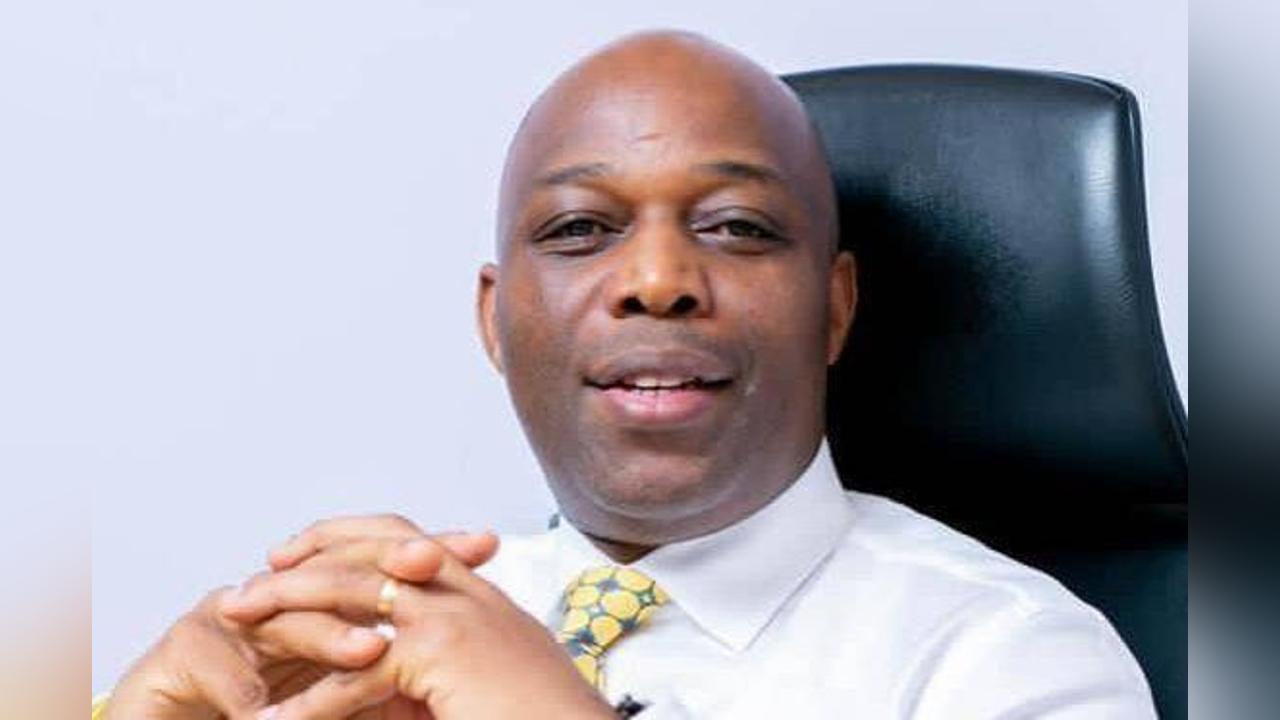Africa-Press – Uganda. As CEO of Letshego Uganda, Giles Aijukwe is leading a critical shift in the country’s financial sector, striving to make banking accessible to the millions of citizens historically left out.
Aijukwe is focused not only on profit but on purpose, challenging the conventional wisdom that serving the underserved is inherently high-risk.
In this interview, the seasoned executive discusses his commitment to inclusive finance, which he calls a matter of dignity, and shares how he instills a transformational mindset within his organization.
Aijukwe also reflects on the essential changes, including aggressive digitization, that are reshaping Letshego’s identity as a trusted, high-impact lender in Uganda.
What does “inclusive finance” truly mean to you, beyond the business jargon?
Inclusive finance, to me, is about dignity. It means ensuring that a market vendor in Gulu or a boda rider in Masaka has the same right to access financial solutions as a corporate professional in Kampala. It’s not charity; it’s creating systems where everyone, regardless of background or income level can participate in growth. At Letshego, we see finance as a bridge to opportunity, not just a product on a shelf.
In an era where profit always takes center stage, how do you personally ensure that purpose doesn’t get lost in boardroom decisions?
The boardroom is often about numbers, but I remind my team and myself that every loan we approve has a face behind it. Purpose comes alive when you see a farmer send their child to school, or a small business owner expand because of our support. Profit is important, it sustains the mission but it is not the mission. Our compass is always: are we improving lives sustainably? If the answer is YES, the financial returns follow naturally.
What role do you see Letshego playing in reshaping the narrative of banking in Uganda, especially for the underserved?
Banking has historically been designed for the few, not the many. Letshego is rewriting that story. We are showing that the underserved are not high risk, they are under-recognized. By investing in digital platforms, community partnerships, and financial literacy, we are proving that access to credit and savings can be both inclusive and commercially viable. My hope is that when people speak of financial inclusion in Uganda, Letshego is the name synonymous with trust, impact, and innovation.
What is the biggest mindset shift you have had to instill (internally or externally) to help others see that finance can be a force for good?
The shift has been moving from “transactional” thinking to “transformational” thinking. Internally, I’ve pushed the team to see beyond targets and view themselves as enablers of dreams. Externally, we’ve worked to change perceptions that financial institutions only take, by demonstrating that we give back, empower, and journey with customers. It’s a culture change, and culture is always the hardest but most rewarding frontier.
The CEO as a Change Agent
Change is never easy. What was one decision you made early on that met resistance, but proved pivotal for Letshego’s current momentum?
Early on, I championed the move to aggressively digitize our services. There were understandable fears: from staff about redundancy and from customers about trust. I believed strongly that the future of inclusion was digital. Today, we can serve more customers, faster, with lower costs and greater transparency. That resistance was the fire that tested the decision, and I’m glad we stayed the course.
How have you seen your team or organization evolve, not just in performance, but in mindset and culture?
The evolution has been remarkable. When I joined, there was still a strong focus on traditional banking metrics. Today, conversations in our corridors include how we impact the farmer, the teacher, the informal worker. We’ve moved from a culture of compliance to one of contribution.
Looking back now, what do you think was your biggest personal growth moment as a leader during this change journey?
My biggest growth moment has been learning to listen more deeply. In a turnaround or growth phase, leaders often want to move quickly. I had to learn that true transformation is not imposed; it is co-created. By listening to my team, customers, and even critics, I became a better leader; more patient, inclusive, and strategic.
What keeps Giles awake and what gives him hope
Leadership at the top can be lonely. What’s one thing about being CEO that people often misunderstand or never see?
People often see the decisions but not the weight behind them. Every “yes” or “no” I give affects livelihoods, careers, and families. The solitude comes from carrying those consequences quietly. It’s not just about steering strategy; it’s about carrying responsibility for people’s futures. That invisible weight is often misunderstood.
Despite the challenges, what gives you hope — about Letshego, Uganda, or the next generation of leaders?
What gives me hope is resilience. Uganda is a young nation, full of energy and ideas. I see it in our customers who turn micro-loans into thriving businesses, and in our young staff who push us to be more digital, more relevant, more human. The next generation of leaders is not waiting for permission; they are already shaping the future. That fills me with optimism.
What’s a personal habit, ritual, or philosophy that helps you stay grounded through the storms of leadership?
I start my mornings in silence, reflecting and praying before the world demands my attention. I also make time for family; they remind me of who I am beyond the title. The storms will always come, but when you know your center, you can weather them with clarity and grace.
Bonus Elements..
Is there a book, quote, or thinker whose words have stayed with you and perhaps even shaped your leadership style?
Absolutely. One book that has left a lasting mark on my leadership philosophy is “Who Moved My Cheese?” by Spencer Johnson. Growth belongs to those who anticipate disruption, adapt early, and move forward with courage instead of fear. As a CEO, I see this lesson every day. Markets shift. Customer behavior evolves. Technology accelerates faster than planning cycles. Leadership, therefore, is not just about setting strategy, it’s about helping people let go of the old, embrace uncertainty, and discover the opportunity ahead
When you’re not thinking about strategy and sustainability, what’s your guilty pleasure?”
Guilty pleasure? A good cup of coffee, family time and a long scroll through travel documentaries: planning trips I may never take but enjoying every moment of the imagination. It reminds me there’s a world beyond boardrooms and balance sheets.
Source: Nilepost News
For More News And Analysis About Uganda Follow Africa-Press






